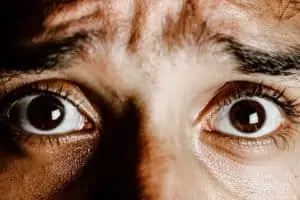Archives
Pointy canine teeth may be a good look for a vampire. But if you’re one of the many people whose canines are pointier than you’d like, we want you to know that there are various ways that your dentist in Sparks can use cosmetic dentistry techniques to reshape your teeth and revitalize your smile.
All About Canine Teeth
Canine teeth are those four teeth in the top and bottom of our mouths that are naturally pointy in shape. Some people refer to them as vampire’s teeth, and they can somewhat look like dogs’ teeth, hence the name canine. The unique shape of the canine teeth helps us eat by allowing us to tear, hold, and chew food. But if you think your canines are too long or too pointy, let’s check out a few ways your dentist in Sparks can help.
3 Ways to Change The Shape of Teeth
Cosmetic dentistry isn’t only meant for people who want to get a brilliantly white smile. In fact, it can fix a whole bunch of aesthetic concerns. Three of the best ways to fix pointy teeth through cosmetic dentistry are:
- Bonding
- Veneers
- Recontouring
Bonding
Dental bonding is the most conservative way a dentist can change a tooth’s appearance. The treatment involves applying a tooth-colored material to a tooth and sculpting it into an ideal size and shape. Bonding can also fix chipped teeth, slightly overlapped teeth, and even crooked teeth.
Veneers
Dental veneers are thin pieces of porcelain that are attached to the front surface of teeth. They can cover up discoloration, fill in gaps, and change the size or shape of teeth. The procedure requires your dentist to remove a small portion of enamel for the veneer to fit. But after that, you’re left with a new, natural look.
Recontouring
Another way your dentist in Sparks can change the shape of your teeth is through tooth recontouring. This quick and easy treatment allows your dentist to use an artistic eye to gently remove tooth enamel to alter the size or shape of a tooth. Only a few millimeters of enamel are removed so it’s a painless procedure.
Changing the look of your smile doesn’t need to be complicated or expensive. Start your smile makeover journey by talking with a dentist about your options.

Prior Dental Experiences
A study published in the National Library of Medicine found that many people who are scared of the dentist can trace their fear back to a negative experience, usually one that occurred during childhood. Now, this doesn’t necessarily mean that the dentist was bad. In fact, more research suggests that there is a correlation between the type and amount of dental treatment a child has had and the severity of their dental anxiety. For example, a child that had multiple serious treatments such as extractions is more likely to have dental fear later in life than kids who visit the dentist regularly and experience ongoing preventive care.
Learned Behavior
Even if someone personally didn’t have a negative experience in the dental chair growing up, they may still have a fear of seeing their dentist in Sparks due to learned behavior or mindset from a parent, sibling, or another close acquaintance. This is one reason why it’s so important to speak positively about seeing a dentist (or any doctor for that matter) around kids and others.
White Coat Syndrome
Occasionally, some people have a negative body reaction whenever they visit a dentist or medical doctor. This can be known as white coat syndrome. White coat syndrome can cause a spike in blood pressure whenever in a doctor’s office. An increase in blood pressure can cause someone to feel uneasy, hence the feeling of being scared of the dentist.
Personality Traits
The same National Library of Medicine study from above also examined two types of personality traits and how they may relate to dental fear. The two traits were:
- Extraversion – warm, excitement-seeking, assertive
- Neuroticism – anxious, self-conscious, showing depressive symptoms
The scientists found that those two traits may have a correlation to dental anxiety with neuroticism being more likely to experience dental fear.
Overcoming Dental Fear
We understand that fear is a very real feeling for many people. But there are some tricks you can try to help overcome dental fear such as:
- Using relaxation techniques
- Asking about the use of sedation dentistry
- Finding the right dentist that makes you feel comfortable
- Listening to music
- Talking with your dental team about your fears and communicating often
Being relaxed and comfortable when you visit your dentist in Sparks is important for many reasons. One of those reasons is that you will be more likely to keep up with appointments every six months, which can go a long way in keeping your teeth healthy and reducing the need for complex treatment.
If you’re overdue for a dental appointment, talk with us. We’re here to help you keep you relaxed and at ease, and the more we know about your fear the better we can assist you.

